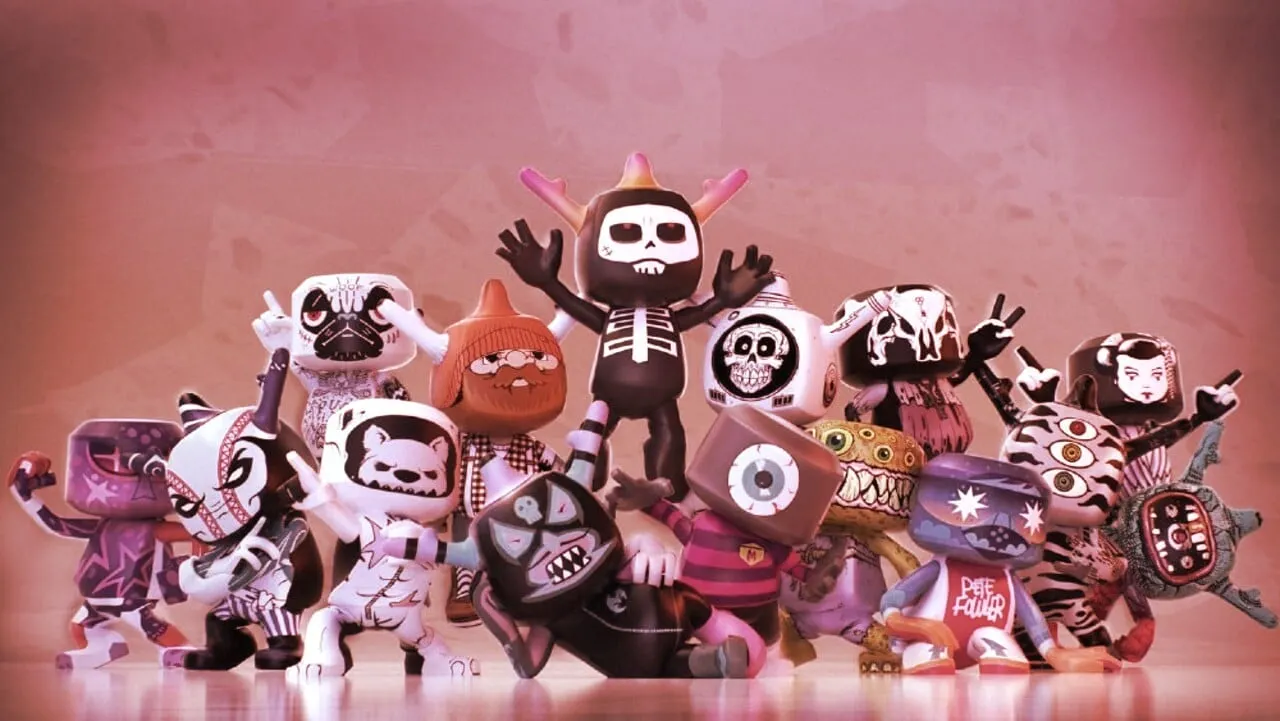In brief
- Crypto gaming firm Mythical Games has acquired Polystream, a cloud gaming startup.
- Mythical raised $150 million at a $1.25 billion valuation in November.
Following Facebook’s recent metaverse showcase and rebranding to Meta, hype around the concept of the metaverse—an immersive, digital avatar-driven evolution of the internet—is at an all-time high. It may be many years out, however, and one of the barriers to widespread adoption is users having powerful-enough hardware to run 3D worlds and game experiences.
Mythical Games, the creator of NFT game Blankos Block Party and creator of blockchain gaming infrastructure, sees another potential solution. That’s why today, the firm announced that it has acquired Polystream, a technology startup that has built a cloud-streaming platform that makes it possible to play powerful games and experiences on even lower-end devices.
This isn’t an entirely new concept, as Google’s Stadia, Amazon’s Luna, and Microsoft’s Xbox Cloud Gaming services can run games on cloud servers. In those “pixel streaming” examples, the game runs on a remote cloud server with a powerful GPU, and then it essentially streams video to your device of choice—including smartphones, tablets, and set-top boxes.
Polystream’s Command Streaming technology, on the other hand, doesn’t require a cloud GPU for each user. Instead, it significantly compresses data sent to the device, which uses its own GPU—even if it’s not a high-end graphics card—to draw the commands in real-time. It’s claimed to be more scalable, less expensive, and less energy-intensive than the other method.
Not only does cloud-based game streaming make it possible to run 3D games on modest devices, but it also minimizes the amount of data that users must download before playing. Blankos Block Party on Windows PC is normally a 4GB download, but with Polystream, Mythical Games was able to create a compact 5MB local client that streams in data while playing.
When users are hopping between the shared 3D spaces that are expected to make up the future metaverse, Mythical Games co-founder and CEO John Linden told Decrypt, they won’t have to wait for sizable downloads to get up and running thanks to Polystream’s tech.
“This is not the audience that is ready to download 100GB to play Call of Duty on a high-end gaming PC,” said Linden. “They want to be in these immersive 3D worlds. They want to transact, they want to socialize, and then they want to get out—and sometimes they want to do that on a Chromebook or another lower-end device.”
Mythical Games will first deploy the Polystream technology in Blankos Block Party, its own NFT-powered, playground-like PC game that the company says has registered over a million unique players. While Blankos was Mythical’s first project out of the gate, the company’s larger focus is the Mythical Platform: EOS blockchain-based gaming infrastructure that other studios can tap.
Linden said that Mythical Games expects eight to 10 games to launch in 2022 using its blockchain gaming platform, and Polystream will be a part of that. One game that has yet to be announced is a collaboration with a “really, really strong crypto project,” said Linden, which he described as “kind of the brand name of NFTs.”
Over time, Mythical plans to open up the Polystream technology so that any game studio can utilize it, creating a distributed computational platform to potentially power the future metaverse. Polystream’s Phantom engine technology, meanwhile, can enable support for tens of thousands of remote spectators within game worlds—ideal for esports competitions and content creators.
Mythical Games most recently raised $150 million in November’s Series C round, which was led by Andreessen Horowitz and included the NFL’s 32 Equity investment arm and NBA icon Michael Jordan, among others. It valued the firm at $1.25 billion, and brought its total investment tally to $270 million to date.
With the rise of NFT-fueled games like Axie Infinity and The Sandbox, plus attention from gaming giants like Ubisoft and Square Enix, Linden sees significant potential ahead in the space.
However, he cautions that the industry is still in “early, early days,” and that not every in-game NFT implementation or project will necessarily be a winner. He likened the current state of the crypto gaming industry to the second year of mobile games, when studios were still coming to grips with the platform—but it was year three and beyond that everything started to click.
“It will keep moving in a positive direction, but I think we'll see some trials and tribulations this year,” Linden said of crypto games in 2022. “I think we'll see some people not quite get it right, but we'll see people that are starting to do some really innovative gameplay that can only be done with these NFTs.”

